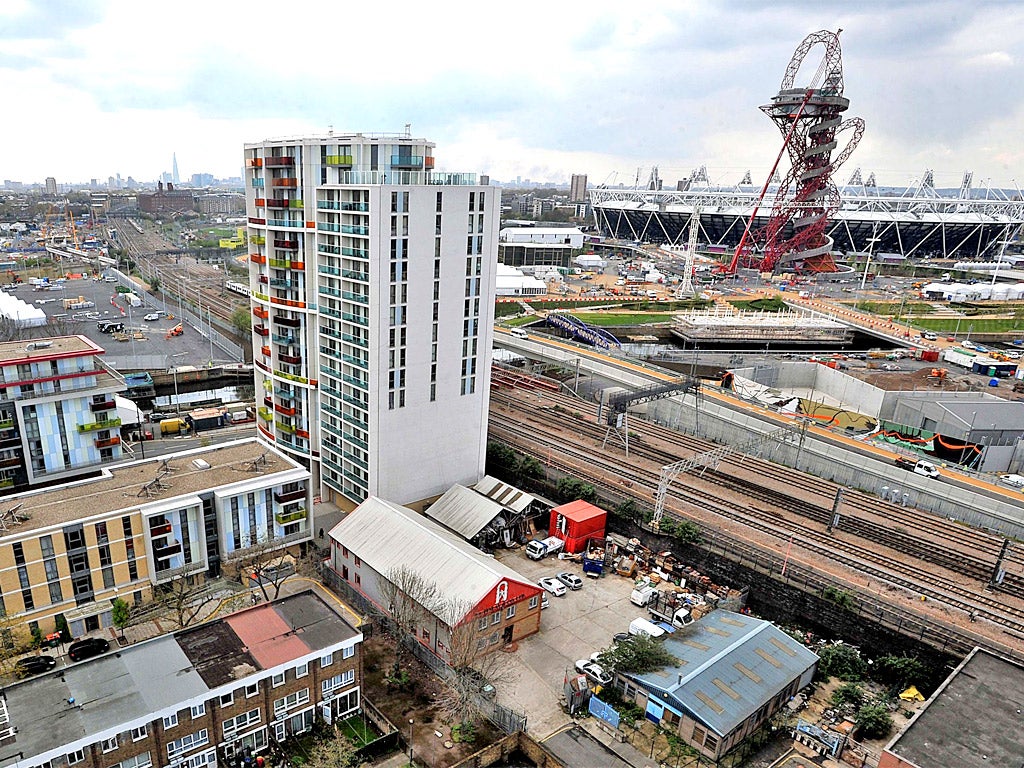
Your support helps us to tell the story
From reproductive rights to climate change to Big Tech, The Independent is on the ground when the story is developing. Whether it's investigating the financials of Elon Musk's pro-Trump PAC or producing our latest documentary, 'The A Word', which shines a light on the American women fighting for reproductive rights, we know how important it is to parse out the facts from the messaging.
At such a critical moment in US history, we need reporters on the ground. Your donation allows us to keep sending journalists to speak to both sides of the story.
The Independent is trusted by Americans across the entire political spectrum. And unlike many other quality news outlets, we choose not to lock Americans out of our reporting and analysis with paywalls. We believe quality journalism should be available to everyone, paid for by those who can afford it.
Your support makes all the difference.A Labour council’s attempts to rehouse 500 of Newham’s poorest families as far afield as Stoke-on-Trent has highlighted Britain's shortage of affordable housing, which housing associations warn will soon reach crisis-point.
Social housing stock has declined from 5.5 million homes in 1980/81 to 3.8 million homes in 2010/11 according to Government figures. The recession has seen waiting lists grow, house prices forecasted to rise and private sector rents also rising, against seasonal trends.
Housing associations and charities have argued that the housing benefit cap exacerbates the problem, resulting in an urban gentrification tantamount to social cleansing. Housing Minister Grant Shapps has countered with accusations of political game-playing and confirmed the Government’s commitment to build 170,000 affordable new homes by 2015.
Other initiatives include help for first-time buyers and promoting house boats. But with 1.7 million households currently on council waiting lists, will this be enough?
The Numbers
£7bn – Annual cost of poor housing borne by the NHS, the education system and social services. Source: The Pro-housing Alliance
35 – Average age of first-time buyers in the UK. Sources: Property Wire, Post Office Mortgages
77.3% - Real term decrease in government spending on housing between 1980/81 and 2000/01. Source: The Pro-housing Alliance
1 in 12 – Proportion of the UK currently on waiting lists for social housing. Source: The Pro-housing Alliance
62,000 – Number of homeless families in 2009/10. Source: Shelter
Further Reading
I Can Afford to Pay the Rent: Most People Can’t Owen Jones, The Independent, 2012
English Housing Survey, Headline Report 2010-11, Department for Communities and Local Government, 2011
Recommendations for the Reform of UK Housing Policy, The Pro-housing Alliance, 2011
Why We Campaign: The Housing Crisis, Shelter, 2011
First-time buyers: Life begins at 40, Kunal Dutta, The Independent, 2011
Timeline
1919 – Concern over the poor physical health of WWI recruits leads Lloyd George’s government to launch the 'Homes Fit For Heroes' campaign, requiring councils to provide housing.
1945-1951 – Clement Attlee’s post-war government builds over a million homes, mostly council properties.
1980-1998 – Approximately 2 million council homes are sold off, following the success of Thatcher’s 'Right-to-Buy' scheme.
2008 – The financial crisis leads to an increase in the mortgage deposits demanded by banks. With social housing stock depleted, many are trapped in costly rented accommodation.
Join our commenting forum
Join thought-provoking conversations, follow other Independent readers and see their replies
Comments